3 Ways To Rock The Hospitality Industry
Don’t have time to read the whole guide right now?
No worries. Let me send you a copy so you can read it when it’s convenient for you. Just let me know where to send it (takes 5 seconds)
The hospitality industry is a tough one to crack. Whether you are a professional event planner, DIY, work in a venue, wherever you are in the hospitality industry, things can get quite hectic quite often.
But here’s the thing: it doesn’t have to be this way.
You can take the stress out of the hospitality industry and make event planning and booking events work for you.

And while closing sales is always tough, we will go through three ways you can make more sales in the hospitality industry and improve your business.
We go through this material in more depth in our free webinar but here’s a taste for now.
And remember that it doesn’t matter if your business is big or small, if you’re in a boutique venue, or a large venue, if you plan only a few events, or a lot, there are always ways for you to improve.
So let’s get started!
Rock The Hospitality Industry: Think Like Your Customer
One of the first things you need to keep in mind when trying to improve your sales and minimize stress is thinking like your customer.
Many times the stress that comes from the hospitality industry is simply because a customer is not being nurtured well. Customers can complain or demand more things.
So how can it get better?
Well the first thing to do is put yourself in your customer’s shoes.
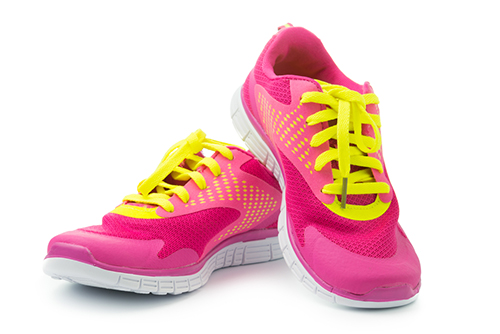
So what does that mean?
If you are an event planner, think about what your customer wants and how you can deliver it. In many businesses, there’s a big communication gap which gets frustrating for customers.
The same thing is true in venues. The customers there can sometimes feel like they are not being catered to, that phone calls are not being answered, and they may feel anxiety about the event not going off 100% properly.
That’s why it is recommended to communicate well and one thing you can try is to communicate visually.
In other words, don’t tell the customer things, show them!
Use tools like EventForte’s event management app which can display event layouts in 2D and 3D.
So how does this work well for you?
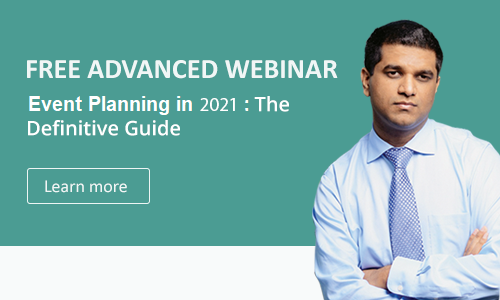
This allows you to display your ideas to your customer so that there is 100% transparency.
You can design your event layout and show your vision to your customer and have a conversation with your customer whether they agree or disagree with your rendering.
You can also show them what it would feel like to be inside the event by using 3D rendering tools.
And this really goes back to the golden rule: treat others the way you want to be treated.
When you are a customer, you want the person you are doing business with to be transparent.

And so should you!
But you may be thinking, I don’t lie or mislead my customers. So what else should I be transparent about?
It’s one thing to not lie to your customers which is obviously great, but it is another thing altogether to go out of your way to be transparent.
That is what your customers are looking for.
Go out of your way to tell your customers what you are thinking about their event, their layout, or really anything!
Customers love communication and so should you.
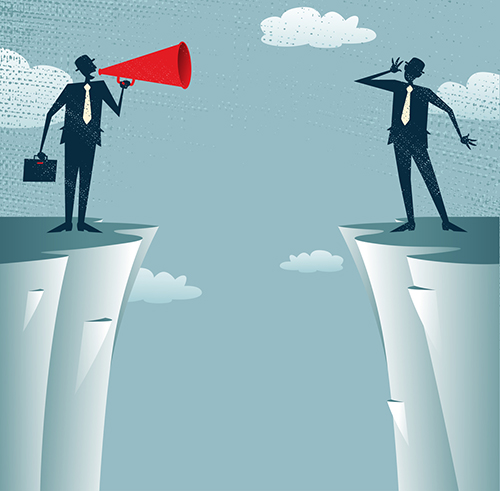
And even if being more transparent may take extra effort out of you, in the long run, it will be great for your reputation and your career.
One thing to always keep in mind is that the hospitality industry is cyclical meaning that the customers you get can generally be repeat customers as well. Annual conferences, monthly meetings, all that kind of stuff happen once a year or more.
And even lifecycle events which are one off could lead to signing you up for other lifecycle events or referrals for friends and family members.
So that means the hospitality industry is all about reputation.
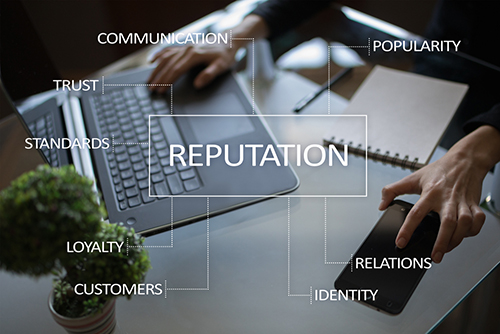
And to measure how your customers feel about you, you should look to your net promoter score (NPS). Your NPS is measured on a scale from 1 to 10 with 1 being the lowest, where you can see how your customers generally feel about you.
A score of 9 or 10 means your customers are your promoters. That means they will refer you and say great things about you.
A score of 7 or 8 means your customers are neutrals. This means they won’t say anything good or anything bad.
Anything below a 7 means your customers are detractors. They will actively tell others not to use you. In other words, they were not happy.
So the question is how to find your NPS.
Generally the best way is through surveys. If you can survey between 30 to 50 customers, you will get a good sense for how your customers feel about you.
As to how your customers feel about you and the kind of questions you should ask, we go through all this in MUCH more detail in the webinar.
Rock The Hospitality Industry: Think Like An Artist
Another aspect of the hospitality industry we go into a lot of depth within the webinar is how to think like an artist.
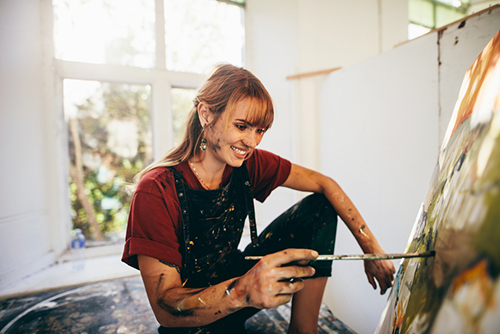
In the hospitality industry, as we like to say, you want to sell your customers their dreams.
Thinking from the perspective of your customer as we discussed in the previous section, events sometimes have a very long lead time. That means from the beginning of planning or the booking of the venue, your customer has a vision of how the event should look.
This is especially true in weddings but it is also true many times even in non-social settings such as conferences.
There is always a vision and you need to execute.
So what’s the first step.
Well knowing a little bit about design theory certainly helps.
If you’re an event planner you should know about the different design setups and what types of events they are good for.
There are basic kind of setups such as boardrooms, hollow squares, U-shape, theater, herringbone, schoolroom, and banquet set ups.
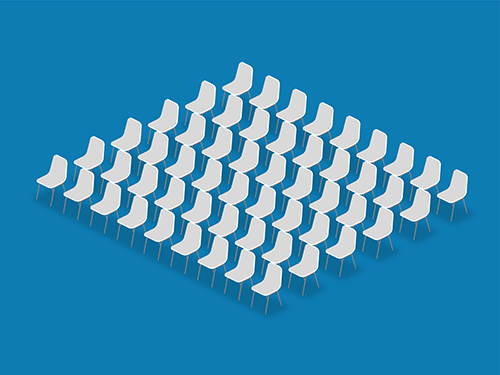
We get into all these types and more in detail in the webinar but the point is to know what they look like, if they can fit in the venue, and what they are good for.
For example, it is important to know whether your event is about fixing the point of engagement on one speaker or an interactive session.
For example, crescent round setups are great for speakers because all the tables are placed and shaped in a way to allow for maximum engagement with a single speaker.
This would be as opposed to a boardroom setup where the idea is collaboration. There is no single point of engagement and you want everyone in the event to feel at ease to contribute to the conversation.
Another thing to keep in mind is color. Different colors can signify different emotions.


Ever heard of Plutchik’s Wheel of Emotions? We go into that at great length in the webinar but the point is that lighter colors can signify calmer emotions while bolder colors can signify stronger emotions. For example, a light yellow can display “serenity” while a bolder yellow can be “ecstasy”. See what I mean?
And these color decisions can help set the mood. You can think about this when it comes to decorations, table covers, everything.
But it goes even further than that. You can think about artistry even on something as mundane as your website. For venues, the RFP tool is a great way to put your customers at ease by making it simple.
Most online RFP tools have serious problems. Many are not above the fold, meaning they are not in view when a customer first gets to the site.
Another serious problem is that RFPs try to take in too much information. This can be aggravating for your customers.
So simplify the process and only ask for the most important fields such as email address, name, and number of attendees. The rest you can figure out later.
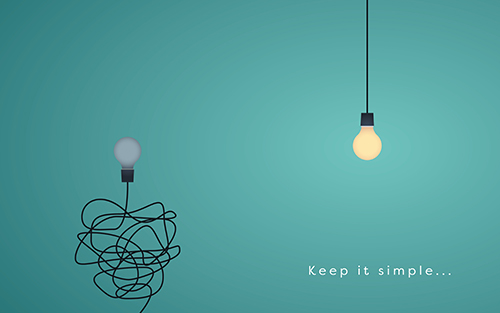

We go into all these issues much more in the webinar but the point is to turn these everyday decisions into an art. The idea is to create an aesthetic display that your customers will love.
Rock The Hospitality Industry: Think Like A Psychic/Magician
Lastly, to give you a taste of what we talk about in the webinar, we talk about how to use “magical” powers to foresee events or how to turn wins into BIGGER wins.


So here let’s get into some of the modern trends in this area of the hospitality.
One of the best things you can do to market your event effectively is to leverage influencers. Influencers are minor celebrities (think YouTube personalities) who have large followings on Social Media.
These are people who retweet things they have to say and share their content on Facebook, stuff like that.
If you can get an influencer like this to come to your event, his or her fans will follow..
But it gets better.
Not only that, but influencers will then post about what events they are going to on their social media accounts which will bring a huge cross section of people to the event.
Now you might be asking why their followers need to go to events they go to.
And the answer is FOMO, or should I say #FOMO?


FOMO stands for “fear of missing out”. FOMO is the phenomenon, made popular by millennial culture, of people being afraid they are going to miss out on an amazing experience.
Millennials, more than past generations, are getting more and more into the idea of valuing experiences over things.
And this is where the hospitality comes in.
By being able to provide amazing experiences, hospitality professionals can gain fantastic reputations. So getting these influencers to come, catering to their fans, that can be great for your business, whichever segment of the hospitality industry you are in.
Speaking of your business, there is another aspect of the hospitality industry which is being underutilized: upsells.
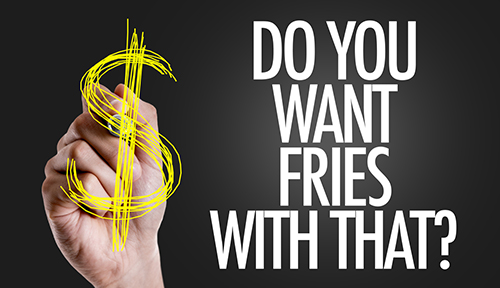

For whatever reason, the hospitality reason has been reticent to adopt upselling but it works. For event planners, you can think of things such as offering multi-event packages to your customers upfront.
For venues, think about offering different types of insurance as part of the booking.
This is about turning a win into a bigger win.
Lastly for this section, let’s talk a little bit about event logistics.
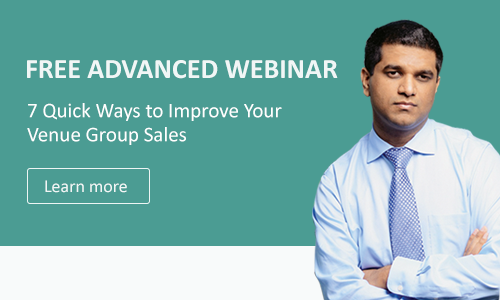
Whatever your segment of the hospitality industry, you want to be prepared so you can use your “magic” powers to predict outcomes.
So one handy tip is to check the weather forecast before the event. Even if your event is indoors, you need to know if the weather is bad because that may make transportation to the event difficult.
Additionally, you need to know where all the emergency equipment is. If you are an event planner, this can also mean bringing extra emergency equipment with you such as a first aid kit, bandages, and whatnot.


Another useful thing to know are flight numbers, especially of your VIPs. This way you can know if the VIPs for your event are arriving on time or if there are any delays.
It’s all about being able to plan well and look into the future to see any ways you can mitigate any risk.
We go into a lot more about risk mitigation in the webinar but as you can see, it is all about thinking ahead, thinking about what’s likely to happen and not likely to happen and planning ahead.
Don’t have time to read the whole guide right now?
No worries. Let me send you a copy so you can read it when it’s convenient for you. Just let me know where to send it (takes 5 seconds)
Conclusion
So as I said, that’s only a taste of what we talk about in the webinar.
We put these on because we know the hospitality industry is a challenge, not just in closing sales and the normal business concerns but also the high amount of stress.
Because wherever you work in the hospitality industry, you are constantly dealing with a lot of people whether event planners, venues, vendors, attendees, you name it.
One of the best parts about the webinars is that they are free! We love to give this information out to the hospitality industry so you can feel confident in what you do.


But we do not put on these webinars that often so it is important for you to register now while seats are still available.
At EventForte, we are always keeping up with the latest trends, technology, and techniques in the hospitality industry. And we know that by the end of the webinar, you will have much more knowledge about the hospitality industry than you did before you came in.
Comments
Leave a comment